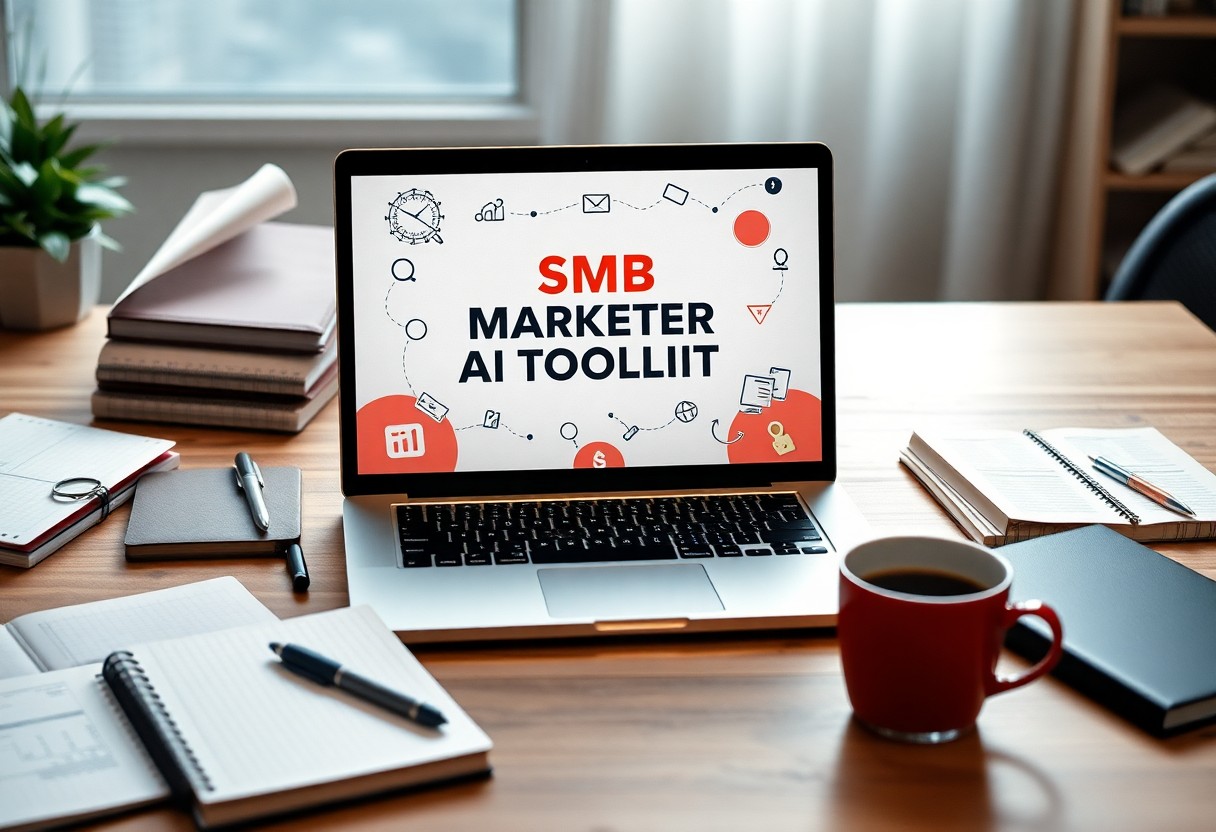
Top AI-Powered CRM Software for Service-Based SMBs.
AI is transforming the way service-based small and medium businesses (SMBs) manage their customer relationships. By leveraging advanced AI-powered CRM software, you can streamline your operations, enhance customer interactions, and ultimately drive growth for your business. In this blog post, we will explore the top AI-driven CRM solutions tailored specifically for service-based SMBs, helping you make informed decisions to elevate your customer engagement and operational efficiency.
There’s a growing demand for efficient customer relationship management in service-based small and medium-sized businesses (SMBs). In this blog post, you’ll discover some of the top AI-powered CRM software options tailored specifically for your needs. These solutions leverage artificial intelligence to enhance your customer interactions, streamline workflows, and drive growth. Whether you’re looking to improve customer engagement or automate routine tasks, these tools will empower you to get the most out of your service business.

The Game-Changing Impact of AI on Customer Relationships
AI has redefined customer relationships by enabling deeper insights into consumer behavior, fostering closer connections, and enhancing overall service delivery. Through sophisticated algorithms, AI tools analyze vast amounts of data to identify patterns, anticipate needs, and tailor interactions. This transformation not only elevates customer satisfaction but also empowers you to make strategic decisions that lead to increased loyalty and retention.
Enhancing Personalization through Predictive Analytics
Utilizing predictive analytics, AI captures customer preferences and behaviors, allowing you to create highly personalized experiences. By anticipating what your clients might require, you can proactively engage with them, significantly improving their satisfaction and loyalty. This focused approach helps unveil opportunities for upselling and cross-selling tailored products and services to your client base.
Automating Mundane Tasks to Boost Efficiency
Automating routine tasks through AI not only saves time but also enhances your team’s focus on high-value activities. Manual data entry, follow-up emails, and scheduling can be effectively managed with AI, freeing you up to concentrate on building relationships and providing exceptional service. This leads to increased productivity, as your team can dedicate more time to strategic initiatives and customer engagement strategies.
By leveraging AI tools to handle mundane tasks, your service-based SMB can experience a significant boost in efficiency. For instance, chatbots can manage initial customer inquiries, allowing your staff to focus on complex issues requiring human intervention. Additionally, automated scheduling assists in managing appointments while ensuring no conflicts arise, streamlining the customer experience. An example is the use of AI-driven CRM systems, which can trigger reminders for follow-ups and important customer milestones, keeping engagement consistent and timely. As a result, you can cultivate stronger relationships while maximizing operational efficiency in your organization.
Transformative Features of AI-Powered CRM
AI-powered CRM systems come equipped with a range of transformative features that elevate customer interactions and streamline operations. From automating mundane tasks to providing deep insights into customer behavior, these tools help you enhance productivity and foster stronger relationships. With capabilities like intelligent lead scoring, predictive analytics, and enhanced customer segmentation, your business can achieve a level of personalization that was previously unattainable, driving growth and customer satisfaction.
Intelligent Lead Scoring and Management
Effective lead scoring enables you to prioritize engagements based on various factors, such as behavioral data and historical interactions. AI analyzes these metrics to assign scores to leads, ensuring that your sales team focuses on the most promising prospects. This precision in lead management not only improves your chances of conversion but also optimizes your sales efforts, ultimately leading to increased revenue.
Predictive Analytics for Customer Insights
Predictive analytics leverages historical data to forecast future customer behaviors, enabling you to make informed decisions regarding marketing strategies and product offerings. By identifying patterns in customer interactions, trends, and preferences, you can tailor your services to meet evolving needs effectively. This forward-looking approach can significantly impact your overall customer relationship, driving loyalty and repeat business.
Utilizing predictive analytics means your CRM system will continuously learn from ongoing interactions and provide actionable insights. For instance, a study by Salesforce revealed that companies using predictive analytics saw a 10-20% increase in lead conversion rates. By analyzing data points such as purchase history, site behaviors, and customer demographics, these insights help you anticipate customer needs and proactively address them, resulting in a more satisfying customer experience and reduced churn rates. When you embrace these analytics, you position your business for sustained growth and better resource allocation, ultimately leading to stronger, more profitable relationships with your clients.
The Top Contenders: A Closer Look at Leading AI-Powered CRM Solutions
Your exploration of AI-powered CRM solutions wouldn’t be complete without examining the top contenders in the market. Each of these platforms brings unique advantages, leveraging advanced technology to enhance customer interactions and streamline operations. By comparing the features and benefits of leading solutions like Salesforce Einstein, HubSpot, and Zoho CRM, you can make an informed choice that aligns with your service-based SMB’s specific needs.
Features and Benefits of Salesforce Einstein
Salesforce Einstein integrates AI capabilities directly into the Salesforce platform, allowing you to harness predictive analytics for better decision-making. This tool enhances lead scoring and offers actionable insights, helping you prioritize customer interactions more effectively. By automating routine tasks, you can free up time to focus on building meaningful relationships with your clients.
Exploring HubSpot’s AI-Driven Insights
HubSpot’s AI-driven insights provide comprehensive analytics that help you understand customer behavior more intuitively. The platform’s predictive modeling features allow you to track engagement patterns, enabling you to tailor your marketing strategies effectively. This proactive approach not only improves customer satisfaction but also drives conversion rates.
With HubSpot’s AI capabilities, you can also analyze customer interactions across multiple channels, which offers a holistic view of your audience’s preferences. The platform’s intelligent recommendations guide you in creating content and campaigns that resonate with your target audience, ultimately enhancing your marketing effectiveness and optimizing your resource allocation.
Analyzing Zoho CRM’s Intelligent Automation
Zoho CRM leverages intelligent automation to streamline your business processes, which includes automating lead management and customer follow-ups. By utilizing AI-driven workflows, you can ensure timely communication with prospects and clients, enhancing their overall experience. This feature not only saves you time but also increases your chances of closing deals.
Furthermore, Zoho’s AI capabilities analyze data to identify trends and patterns, empowering you to make data-driven decisions. By understanding which strategies are most effective, you can adjust your sales and marketing efforts accordingly, resulting in refined processes and ultimately, greater success in customer engagement.
Tailoring the Experience: Customization and Integration
Customization and integration are vital for ensuring your CRM software aligns with your specific business requirements. With AI-powered CRM tools, you can personalize customer interactions, automate repetitive tasks, and access analytics that provide insights tailored to your service-based SMB. Look for solutions that allow you to modify templates, workflows, and reporting functionalities, ensuring that every element reflects your unique brand and operational processes.
Adapting to Unique Service-Based Needs
Your service-based SMB has distinct needs that off-the-shelf solutions often overlook. AI-powered CRM platforms enable you to customize features such as contact management, service tracking, and customer support to better fit your industry, whether you provide consulting, healthcare, or creative services. These tailored functionalities allow you to enhance customer experiences and streamline your operations efficiently.
Seamless Integration with Existing Tools
Integrating your CRM with existing tools used by your service-based SMB can significantly enhance your overall productivity. AI-powered CRMs often offer integrations with popular software such as scheduling tools, invoicing systems, and email platforms. This interconnectedness helps maintain a fluid workflow, enabling you to access client information and manage operations without cumbersome data transfers.
A seamless integration process allows you to create a holistic view of your customer interactions, ensuring data consistency across all systems. This interconnectivity not only saves time but also reduces errors associated with data entry. For example, when a client books an appointment through a scheduling tool, their information can automatically populate in the CRM, enabling you to track engagement history and personalize follow-ups efficiently. By ensuring your AI-powered CRM works harmoniously with your existing software toolkit, you can drive greater efficiencies in your service delivery and customer relationship management.

Enhancing Customer Relationships through Automation
Automation plays a vital role in enhancing customer relationships, allowing you to streamline processes and focus more on nurturing client connections. By integrating AI technology into your CRM, you gain the ability to manage client interactions efficiently, automate routine tasks, and analyze customer data for personalized insights. This not only improves your operational efficiency but also fosters a deeper understanding of your clients’ needs, ultimately leading to stronger loyalty and satisfaction.
Workflow Automation: Boosting Efficiency
Implementing workflow automation can significantly enhance your team’s productivity by minimizing manual tasks. Through AI-driven CRM systems, repetitive processes such as data entry, follow-ups, and appointment scheduling can be automated, freeing up your staff to engage more meaningfully with customers. For instance, automated reminders and notifications ensure it’s easy to keep track of appointments and deadlines, thereby improving communication and service delivery.
Personalized Communication Strategies
Utilizing personalized communication strategies within your CRM can transform your interactions with customers. By leveraging AI insights, you can tailor your messaging and outreach based on individual preferences and behaviors. For example, addressing clients by name, referencing past interactions, and suggesting products that align with their interests can dramatically increase engagement rates. Utilizing segmentation tools allows you to craft targeted marketing campaigns that resonate with specific demographics, ensuring your communications feel relevant and thoughtful.
Personalized communication can extend to automated email campaigns, chatbots, and tailored customer service. Using data analytics, you can identify the optimal times to reach out to clients, ensuring that your messages align with their availability and current interests. Studies show that personalized marketing can increase conversion rates by up to 10%, proving that a thoughtful approach not only strengthens rapport but also delivers tangible business results. By investing in personalized strategies within your CRM, you create a customer journey that feels unique and valued, leading to long-term loyalty.
Overcoming Challenges: Integrating AI-Driven CRM into Service-Based SMBs
Integrating AI-driven CRM into service-based SMBs presents several challenges that require strategic approaches. First, adapting your existing workflows to include AI functionalities can be daunting, particularly if your staff is accustomed to traditional methods. Resistance to change often hampers the transition, affecting user adoption rates and overall productivity. Addressing these hurdles through clear communication of the benefits and offering ongoing support will facilitate a smoother integration process.
Training Staff for Effective Use
Training staff plays a pivotal role in maximizing the potential of your AI-driven CRM system. Providing comprehensive training sessions helps team members become proficient in utilizing the software’s features. This should include hands-on workshops, tutorials, and easy-to-understand resources that make the learning curve less steep. Empowered employees can leverage AI insights to enhance customer interactions and improve service delivery.
Ensuring Data Security and Compliance
Data security and compliance are paramount considerations when implementing AI-driven CRM solutions. With these systems managing sensitive customer information, ensuring robust security measures are in place is non-negotiable. Choosing a CRM platform that complies with industry regulations like GDPR or HIPAA helps safeguard customer data and build trust. Regular audits, employee training on data handling, and implementing encryption technologies further mitigate risks associated with data breaches and misuse.
Prioritizing data security extends beyond compliance; it involves establishing a culture of responsibility within your organization. Encourage your team to follow best practices regarding data management, such as utilizing strong passwords and recognizing phishing attempts. Regularly reviewing your CRM’s security features and functionality can help identify vulnerabilities, allowing you to address them promptly. By creating a proactive approach to data security, you not only protect your customers but also enhance your’s business reputation in the marketplace.
Cost-Effectiveness: Why AI CRM Software Pays Off
AI-powered CRM software offers significant cost-effectiveness for service-based SMBs by automating tedious processes and improving efficiency. By leveraging advanced analytics and machine learning, these systems can help you optimize customer interactions, reduce manual labor, and minimize errors. This technology translates into substantial savings and the potential for increased revenue, creating a clear financial incentive for integrating AI into your operations.
Return on Investment for Service-Based SMBs
The return on investment (ROI) for service-based SMBs can be staggering when implementing AI CRM solutions. Companies report an average ROI of 300% or more within the first year, largely due to enhanced customer engagement, improved sales cycles, and streamlined operations. You can expect to see not only tangible savings but also elevated customer satisfaction and loyalty, which can drive long-term growth.
Cost Comparison with Traditional CRM Solutions
When comparing costs, AI-powered CRM software often emerges as more economically viable than traditional solutions. Traditional systems typically involve hefty upfront fees and ongoing maintenance costs without the efficiency gains that AI provides. In contrast, AI-driven solutions often come with flexible pricing models that allow service-based SMBs to scale easily, aligning expenses with business growth.
Cost Comparison Table
| Traditional CRM Solutions | AI-Powered CRM Solutions |
|---|---|
| High upfront costs | Flexible subscription models |
| Manual updates and maintenance | Automated updates and support |
| Limited analytics capabilities | Advanced data analytics and insights |
| Long training times for staff | Intuitive user interfaces |
The cost comparison highlights that traditional CRM solutions often burden you with high initial investments and ongoing costs, diminishing the value over time. Conversely, AI-driven CRMs tend to offer much lower entry costs, with expenses that adjust according to your service requirements, allowing you to invest more strategically in growth initiatives. Ultimately, this makes a compelling case for shifting towards AI solutions, empowering your business with immediate and long-lasting benefits.
Real-World Successes: Transformative Stories from Service-Based SMBs
Service-based SMBs have experienced remarkable transformations by integrating AI-powered CRM software into their operations. From boosting customer engagement to streamlining processes, these platforms have redefined how you can interact with and understand your clients. Businesses that harness this technology not only enhance their service offerings but also cultivate deeper relationships with their customers, leading to increased loyalty and higher revenues.
Case Study: Small Business Wins with AI CRM
ABC Cleaning Services adopted an AI-powered CRM and saw a 30% increase in customer retention rates within six months. The software enabled them to predict customer needs and follow up on feedback, resulting in tailored offers that resonated with clients. This proactive approach led to repeat business, with over 40% of their revenue now coming from loyal customers who appreciate the personalized service.
Lessons Learned from Early Adopters
Early adopters of AI CRM systems have uncovered valuable insights that can guide your implementation strategy. Businesses that embraced AI early on have shared experiences that highlight the significance of change management, team training, and continuous monitoring of CRM effectiveness. Applying these lessons can help you avoid common pitfalls and fully leverage the technology to enhance productivity and customer satisfaction.
For instance, one noteworthy lesson is the importance of not just implementing AI technology but fostering a company-wide culture that embraces data-driven decision-making. Early users have noted that involving your team in the setup process and offering training tailored to their specific roles can significantly improve adoption rates and maximize the benefits. Regularly reviewing analytics to refine your strategies has also proven crucial in recognizing new opportunities and optimizing the CRM’s capabilities. These insights can serve as a roadmap for maximizing your investment in AI-powered CRM software.
Real-World Applications: Success Stories from SMBs
The integration of AI-powered CRM software has yielded tangible benefits for service-based SMBs, shaping their operations and client interactions significantly. One standout example comes from a small marketing agency that harnessed a leading AI CRM to streamline project management and enhance customer communication. In just six months, the agency reported a 30% increase in client satisfaction ratings and a 25% boost in project delivery speed, proving that AI can foster growth and efficiency.
How AI CRM Transformed Small Business Operations
For many small businesses, embracing AI-powered CRM has led to a dramatic overhaul of daily operations. A local plumbing service utilized AI automation to manage scheduling and customer follow-ups, reducing appointment booking errors by 40%. This newfound efficiency allowed the team to allocate resources more effectively, ultimately resulting in a 20% increase in service calls and repeat business.
Lessons Learned from Early Adopters
Early adopters of AI CRM systems often encountered a steep learning curve but emerged with invaluable insights. Companies that actively involved their teams in the implementation process reported smoother transitions and higher user adoption rates. Furthermore, focusing on specific use cases—like improving sales forecasting or customer support—proved crucial in maximizing the benefits of AI CRM software. Early champions learned to embrace flexibility and iterate on feedback, shaping their systems to suit evolving business demands.
Insights from early adopters reveal that customizing your AI CRM experience significantly influences its effectiveness. Those businesses that prioritized training sessions and encouraged team feedback during the onboarding process not only saw higher engagement but also identified unique applications tailored to their specific needs. Moreover, regularly revisiting and refining the AI capabilities allowed these companies to stay ahead of market trends and enhance overall customer satisfaction, further solidifying the value of integrating AI into their CRM strategies.
The Future of Customer Relationship Management: Emerging Trends and Innovations
As the landscape of customer relationship management evolves, new trends and innovations continuously reshape how service-based SMBs engage with their clients. The integration of AI and machine learning into CRM systems not only automates routine tasks but also enhances decision-making through predictive analytics. These advancements empower businesses to anticipate customer needs, leading to more effective engagement strategies. Moreover, advancements in data privacy and security also play a pivotal role, ensuring that companies not only meet regulatory standards but also earn their clients’ trust.
The Role of Natural Language Processing in CRM
Natural Language Processing (NLP) revolutionizes how you interact with your customers. By enabling your CRM to understand and interpret human language, NLP allows for more intuitive communication, whether through chatbots, email responses, or analyzing customer feedback. This enhances the personalization of interactions, ensuring that your messaging resonates more deeply with clients, ultimately fostering stronger relationships.
Predicting Changes in Consumer Expectations
Understanding and predicting consumer expectations is becoming increasingly sophisticated with AI capabilities. By leveraging large datasets, advanced algorithms can identify emerging trends and shifts in preferences. Businesses that can align their services with these evolving expectations will not only satisfy their customers but also stay ahead of the competition.
Businesses can harness predictive analytics to monitor not just past customer behaviors but also to forecast future trends. For instance, retail CRM systems are analyzing shopping patterns, seasonal buying behaviors, and social media influences to tailor marketing efforts accordingly. Service-based SMBs can utilize similar strategies by focusing on customer interactions and gathering feedback. By recognizing what clients value most at specific moments, you can adjust your offerings, ensuring satisfaction and loyalty—those who remain responsive to changes will flourish in a rapidly shifting marketplace.
To wrap up
Following this exploration of top AI-powered CRM software for service-based SMBs, you have gained valuable insights into the best options available to enhance your business operations. These tools can streamline your processes, improve customer interactions, and ultimately drive your growth. By selecting the right CRM, you can leverage AI features tailored to your specific needs, ensuring that your business remains competitive and efficient in a fast-evolving market. Take the time to evaluate these options and choose the one that aligns best with your unique requirements.
To wrap up
From above, you can see how top AI-powered CRM software can significantly enhance the efficiency and effectiveness of service-based SMBs. By leveraging these advanced tools, you can streamline your customer interactions, better understand client needs, and improve overall service delivery. Choosing the right CRM will not only optimize your processes but also empower your business to build stronger relationships with your clients, ultimately driving growth and success in a competitive market.




